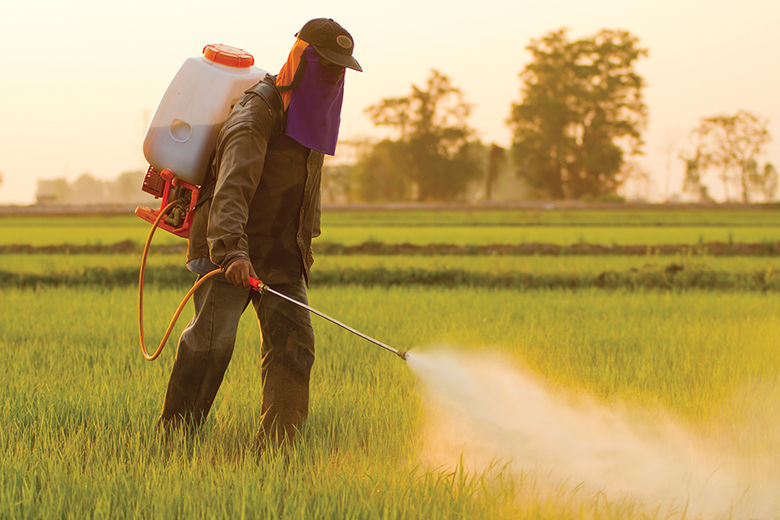A pesticide used on rice, sugar cane and grain crops sparked an outcry when it was linked to cancer, Alzheimer’s disease and celiac disease.
Last month, several Los Angeles county residents filed a class action lawsuit against the Monsanto Corporation alleging that the chemical company is guilty of falsely advertising the product. The plaintiffs are demanding a jury trial.
The chemical referenced in the lawsuit is glyphosate, the active ingredient found in the pesticide Roundup. The Monsanto website says the pesticide only “targets an enzyme found in plants but not in people or pets.” The filers call this assertion “blatantly false.”
Glyphosate targets the enzyme EPSP synthase, which the opponents say is indisputably found in humans — “over one hundred trillion bacteria that produce the targeted enzyme, EPSP synthase, can be found in people,” the plaintiffs state.
“When we eat crops sprayed with glyphosate, we ingest glyphosate, and detectable qualities accumulate in our tissues,” the plaintiffs write, adding, “Glyphosate has been detected in urine, blood, even breast milk — and 75 percent of rainwater samples.”
The gut bacteria affected by the pesticide is responsible for healthy digestion, metabolism and immune system function. “Inability to produce the enzyme spells death for both backyard weeds and gut bacteria.”
In crops, glyphosate absorbs directly through the plant leaves, stems, and roots, while “detectable qualities accumulate in plant tissues.
“Glyphosate works by inhibiting weeds from producing EPSP synthase — and once rendered unable to produce this enzyme — weeds cannot uptake minerals, nor can they make proteins from amino acids, and weeds then starve to death.”
Crops come into contact with glyphosate a second time when farmers, anxious to accelerate the ripening process, use small amounts of the chemical just before harvest time “to partially starve the crops, which mimics the ‘ripening’ process,” according to documentation submitted to the courts.
In March, the World Health Organization declared glyphosate a Group 2A carcinogen. Almost immediately afterwards, The American Cancer Society listed the chemical under the same category.
To become a member of the class action lawsuit, residents of California may contact T. Matthew Phillips at [email protected].

